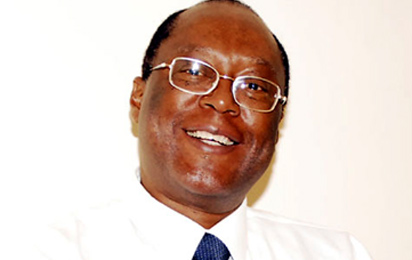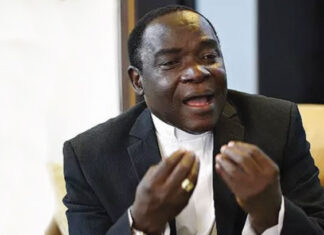The national conference has rounded off its activities. What do you think about the recommendations; subjecting them to the National Assembly or a referendum?
As I have said repeatedly, we must respect the constitution. Whatever we suggest and whatever we do must be in line with the constitution. Nigeria is a country that is run on the basis of the constitution. We are not people that operate by the rules of the jungle.
Osunbor
When Mr. President inaugurated the conference, he said the report from their resolutions, at the end of the day, should be sent to the National Assembly.
From what I gathered from the national conference itself, they have tried to differentiate between matters of policies for the executive and those which are legislative matters that require amendment of the constitution. It is not every decision from the confab that will result in the amendment of the constitution. Some will require executive action.
To me, based on the current competition, that is a course that can be taken. To suggest that the decision of the confab should be subjected to referendum, there is no basis for that under the constitution.
First of all, who will conduct the referendum? Is it the Independent National Electoral Commission (INEC)? If you check the power of INEC under the constitution, it doesn’t extend to conducting a referendum. So who is going to conduct the referendum? What issues are you going to present to the referendum? What will be the role of the National Assembly?
Some people, in their opinion, say the National Assembly does not enjoy the legitimacy to do it because some or many of the members didn’t genuinely win their elections; that they were imposed on the people by INEC. There were also reports that INEC was not thorough in the election that produced some or many members of the National Assembly. Is it the INEC that you alleged did not conduct a satisfactory election that you will now trust to conduct a referendum?
So you can see that there are lots of contradictions. But these contradictions will disappear once everybody begins to act in accordance to what is embedded in the constitution. Once we do that, all these various suggestions flying here and there will become a thing of the past.
In the current dispensation, there have been frictions between the legislature and the executive. How do you see the development, having been on both sides?
My response to that is that it all boils down to politics, and politics has been defined as “who gets what, where and when”. So there is always constant competition for the resources which are always limited, because the resources available at a given point in time can never meet all the needs and expectations of the people. So there is always constant struggle, constant contest as to who gets what, when and how.
It is this interplay that unravels during contests that you see as quarrels between the legislative and executive arms of government. It is not entirely a bad thing that sometimes there can be conflict between the legislature and the executive. There can be heavy conflict – conflict which is geared towards the processes of the checks and balances, because if there are no checks and balances, there will be arbitrariness, and the government will not serve the best interest of the people.
The checks and balances also go beyond the executive and legislature. It also includes the judiciary. The judiciary is also there to keep these two arms in check. Whenever there is dispute between the executive and legislature, the judiciary is there to arbitrate, adjudicate and to keep the officials of government within the constitutional and legal limits of their power. So this is healthy. Even the judiciary itself can be checked by the other arms of government, particularly by the legislature through lawmaking.
The judiciary and the judges don’t make laws; they only interpret the laws which the legislature had made. So if the legislature feels that it wants things to be done in a particular way, the process is to enact a law. Once it has enacted that law, the judges will be bound to obey that law.
In summary, what people regard as unhealthy rivalry and clashes between the three arms of government are inherently part of the democratic process and they should not give undue cause for worry if done within limits. But when things are being done beyond limits and there are excesses on the part of any of the parties, it becomes a matter of major public concern to the members of the public. Once people confine themselves to the power under the constitution, then we can avoid the process of too much exuberance on the activity that alters power.
What is your take on the division among Edo State House of Assembly members along party lines to the extent of holding parallel sittings?
During my first tenure as a senator (1999-2003), the Senate was heavily polarised along party lines, but more polarised among PDP members. Recall the days of Evan Enwerem and Chuba Okadigbo, those who paved the way for the emergence of Anyim Pius Anyim. So it was highly polarised. Again, it’s all a question of interest, but things should be done within limits. The regrettable situation, as far as Edo State is concerned, is where you now have two groups claiming to be in charge of the legislature in the state. I think that cannot be true; having two groups making laws and exercising power in the state. Happily, as I understand it, the matter is in court. So, I believe that sooner than later, the court will come out to resolve this matter. So we can have one legislature in Edo, exercising legislative authority in the state.
Adamawa State House of Assembly recently impeached Murtala Nyako as governor. As a lawyer, what do you think is the legal implication of the action?
I noticed that you used the word “impeachment”, and many Nigerians also use the word. So, talking as a law teacher, law professor and lawyer, the first thing I will say is that the constitution does not provide for impeachment of a governor. If you search the constitution, it doesn’t state how a governor can be impeached. The United States of America (U.S.A.) constitution talks about the impeachment of the governor or the president; but in Nigeria, the constitution does not touch it. What the constitution talked about is removal.
So, what the Adamawa Assembly did recently was the exercise of the power under the constitution for the removal of the governor, Murtala Nyako. Reading the newspapers recently, it appeared that the governor, or rather, the former governor, wanted to challenge the conditions for his removal. So, maybe in the next few weeks, we will start seeing his protest to what led to his removal as a governor.
It is for good reason that the constitution has provided that safeguard. It is one of the extreme measures that can be taken by the legislative arm of government to check the excesses or misconduct of the executive. It is to be expected in a democracy. It is not just for Nigeria and U.S.A.; many countries provide in their constitutions the removal of people from offices. What I should advise and urge Nigerians is that when this is to be done, it should be done in strict compliance to the constitution. Once that is done, democratic life continues.
Many have been eager to hear from you on your thinking on the 2016 governorship election in Edo. What really should we expect from you?
Let us hope that the process leading to the 2015 general elections will be credible, free and fair, as well as acceptable by both Nigerians and the international community. Once we complete the 2015 general elections, then people can begin to plan and prepare ahead for the next election. I think the next one will be the governorship election in Edo in 2016.
Edo is my state, so we definitely will show interest in what happens in 2016. I hope you are all there. We are all stakeholders and I believe that what happens in 2016, at the end of the day, will be collective decisions, wishes, visions, aspirations and ambition of people like you and I.











